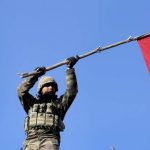Turkey’s local elections on March 31 offer an opportunity to determine which rationality reigns in the country.
By Gokhan Bacik
Given that Turkey is in the midst of a deep economic crisis, the key question is whether or not President Recep Tayyip Erdoğan’s Justice and Development Party (AKP) will lose support. If the AKP maintains its strong electoral support, the elections would prove that the party’s backers follow an ideological rationality, not an economic one.
The Turkish economy is performing poorly in nearly every key metric: inflation, unemployment, bankruptcies and exchange rates. There are serious problems even in the supply chain of essential food items, like potatoes and onions. The magnitude of the economic crisis is such that it could alter electoral behaviour.
Yet unlike during previous elections, there is no domestic or foreign political crisis to distract people from their economic woes. The ruling AKP has tried to provoke some sensitive issues with the expectation that identity politics might overshadow the economic problems. But these efforts have failed, which tells us that the depth of the economic crisis is even greater than the AKP’s ability to play identity politics.
Therefore, the economic crisis has emerged as the type of dynamic in Turkish politics that would normally trigger a change. If the AKP survives these elections with no major losses, we would know that an ideological rationality dominates the country.
Of course, some might argue that Turkey is an authoritarian country in which fair elections are impossible. Notwithstanding this reality, the magnitude of the economic crisis is again an objective reason to expect the AKP to lose serious support.
Propaganda and media control are crucial in distorting fair elections. Yet real problems, especially deep economic troubles, can defy propaganda – and Turkey’s economic crisis now pervades the daily life of its citizens.
Still, Turkey has had elections in the past in which voters made changes despite concerns over electoral fairness. For example, during most elections in the Cold War period, Turkey had only one television station and one radio channel, both controlled by the government, but it could not stop people from voting for change.
Thus, if the AKP keeps its electoral support in the local elections, this could not be explained merely based on the authoritarian regime in the country. The consolidation of an ideological rationality must also be credited.
Given that the economic crisis in Turkey is now an objective fact, economic rationality presumes that the AKP’s votes in the 2019 local elections should be noticeably lower than the 42.6 percent the party received in June 2018. To give a comparative perspective, for example, the AKP’s vote share in the 2009 local elections, which happened during a global economic crisis, was 38.8 percent.
If the AKP survives the March 31 vote with no major loss despite the economic crisis, it would mean the ultimate expectation of AKP supporters is that Erdoğan continues to follow his Islamisation agenda. As long as the AKP does that, voters will keep supporting it, even while the economy teeters on the verge of collapse.
Source: Ahval News



